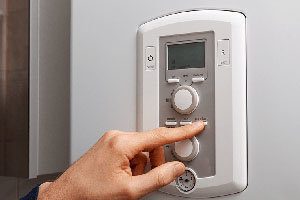 According to a new analysis by landlord insurer Direct Line for Business, last winter saw a record number of claims for faulty boilers. Claims rose 5.2% compared to the winter of 2015/16.
According to a new analysis by landlord insurer Direct Line for Business, last winter saw a record number of claims for faulty boilers. Claims rose 5.2% compared to the winter of 2015/16.
The volume of claims for faulty boilers has consistently increased for the last five years.
With the Met Office predicting temperatures as low as -9C this February, experts are predicting 2018 could see the record broken once again with even more claims for broken boilers.
Typically, the winter months see a 66% increase in boiler claims compared to the yearly average.
With sub-zero temperatures predicted for February, Direct Line for Business is advising landlords that prevention is better than cure and that they shouldn’t be complacent about maintaining their properties’ heating systems.
Calling out an emergency plumber to fix a broken boiler carries a premium, as emergency call-out rates are, on average, 117% higher than average.
Heating issues in the winter months can be particularly unpleasant, so landlords must ensure that their properties have fully serviced boilers to minimise the risk of heating system failures.
Landlords are legally responsible for securing a safety certificate for gas appliances each year, and they also need to ensure that the heating and hot water systems are maintained and functioning properly.
Direct Line for Business offers boiler cover as standard with buildings insurance. As long as the damage is not a maintenance issue or due to wear and tear, we’ll pay the cost of repairing it, or if repair is not possible, replace the broken boiler.
We’ll also pay for additional portable heaters to help tenants try and stay warm while the issue is being fixed.”
Top tips for landlords to keep their boilers in check
1: Keep your heating low: Sudden cold temperatures can freeze your boiler’s external condensate pipe, which could cause your boiler to stop working. Insulating the pipes can help or keep the heating on constantly but low when it’s freezing.
2: Bleed your radiators: If your property isn’t getting as warm as you think it should be, air may be trapped inside the heating system. Releasing air from the system is simple, but you will need a key that can slot into the radiator bleed valve.
If you still have a problem after doing this, you may need to call in professionals.
3: Keep your boiler maintained: Make sure you service your boiler and keep it maintained by the manufacturer’s recommendations. Check regularly for any warning signs such as leaks, cracks or noises; the sooner you can identify a problem, the easier it will be to fix.
4: Turn off services when the property is unoccupied: If you have an unoccupied property for longer than 30 days, it’s worth draining the water system and switching the utilities off. However, if it’s winter, keeping your central heating system on at a minimum temperature can help prevent frozen pipes.
Our Top Read Blogs:
Landlord Electrical Safety Inspection Report (EICR) 2021 Guide




